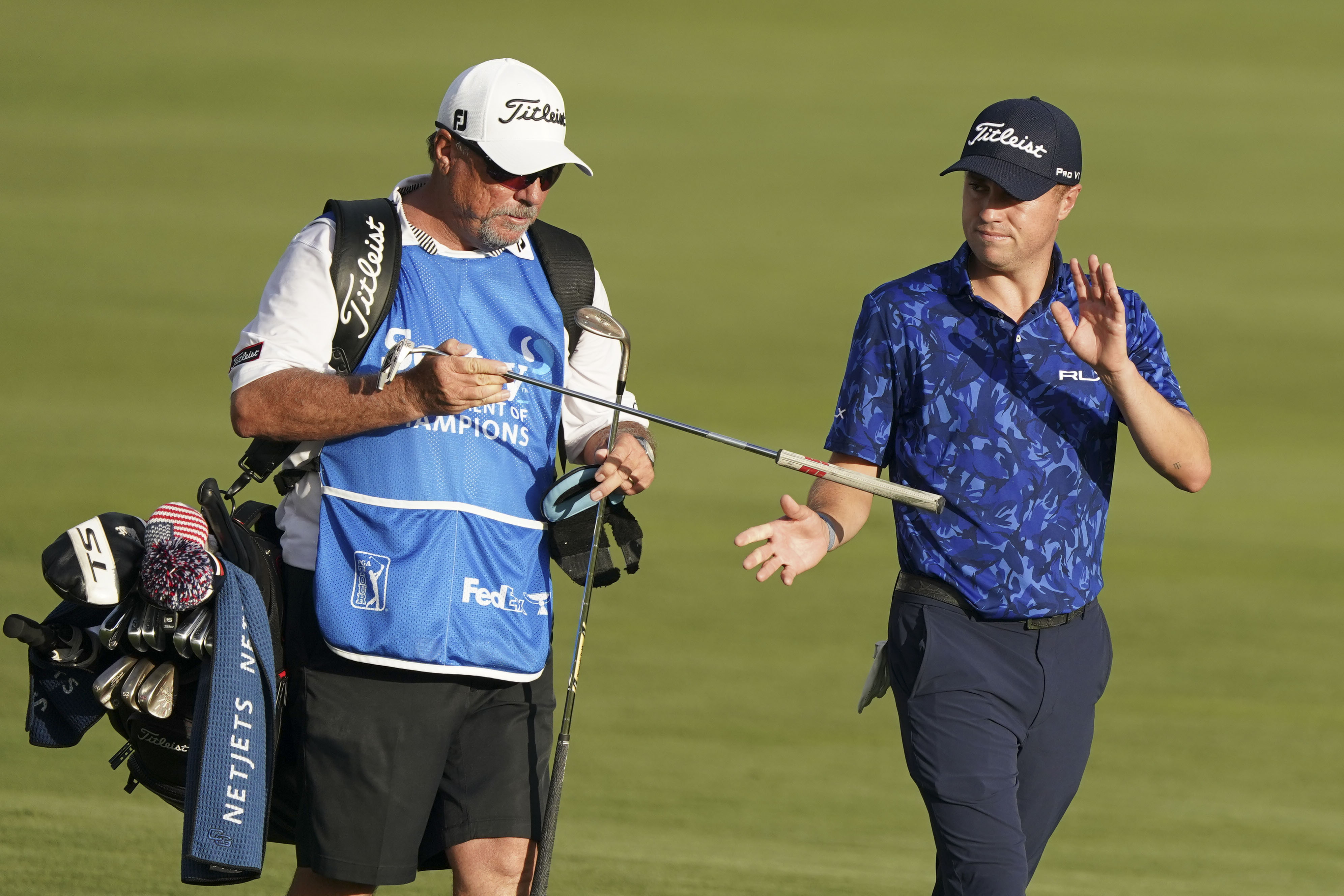As job security goes, PGA Tour caddies enjoy about as much of it as Kim Jong Un’s inner circle, and often alongside an equally capricious man with absolute authority. Only in the manner of their dismissal do caddies have an edge on the Pyongyang cognoscenti.
The attributes Tour players seek in a wingman are as personal as fingerprints. Some require only punctuality and an accurate yardage. Others need more — help reading putts or pulling clubs or being talked off a ledge. There are players who want a friend on the bag, or a proxy psychologist or simply someone to blame. Good caddies know what the boss wants and mold accordingly. And if they’re successful, they’ll gain a solid enough reputation to get another bag when he fires them.
“Not one of us would ever want a 9-to-5 job. We’re not built that way,” a veteran Tour looper told me. “I think caddies are quite an optimistic bunch. Our glass is always half-full. It depends on the player, obviously. We see them at their best and at their worst.”
The ever-shifting nature of player-caddie relationships was to the fore this week as two high-profile pros parted from their longtime sidekicks: Justin Thomas with Jimmy Johnson and Bubba Watson with Ted Scott. Each divorce has its particular motivating factors, from the straight-forward (grating personality differences) to the complex (disputes over a cut of the many bonuses now lavished on players). But whether a split was brewing or sudden — as when Tim Tucker left Bryson DeChambeau at the altar on the eve of the Rocket Mortgage Classic — it usually speaks to the prevailing circumstances of the player concerned.
Thomas was at pains to stress that he didn’t fire Johnson, who has been at his side since his rookie year in 2015. But good caddies are feral, with an innate sense of when it’s time to move on. Despite winning the Players Championship, Thomas had a disappointing year. That’s typically when a player thinks about a shake-up, which puts three constituencies in peril: swing coach, caddie and management.
Changing the latter is messy while dumping instructors entails a fresh start elsewhere. So you can see why so many caddies walk the plank. Thomas’s dad, Mike, is his swing coach and ain’t going anywhere. He also has good management. He had a fine caddie too, and still does. Thomas has lured Jim “Bones” Mackay out of TV, to which he had moved in 2017 after a 25-year run with Phil Mickelson. It’s an unsurprising call: Mackay is highly respected and one of the rare caddies whose counsel can be said to make players better.
The Watson-Scott split might not be as easily navigated with a new hire. Scott was on Watson’s bag for 15 years, 12 PGA Tour wins and two Masters. But Watson was frequently criticized for petulant outbursts directed at his caddie, who defended his boss every time. This parting, which surprised most observers, says something about Watson, but in a positive sense.
For most of his time as a Tour star, Watson has seemed ill at ease, in public, over the ball and in his own skin. Scott was as much crutch as caddie, someone who could help a quirky man navigate his peculiarities.
Watson admitted as much in a social media post announcing the news, writing: “Teddy deserves more credit than anyone can imagine for our success on the golf course, but I am just as grateful for his friendship and the way he has helped me grow as a person.”
The Bubba we have seen in 2021 appears changed. He showed up in Ohio to cheer the U.S. team at the Solheim Cup. He was the first player to support Matt Wolff when the young star revealed his mental health struggle, and spoke openly about his own issues. He is more comfortable with his idiosyncrasies, more self-aware about his shortcomings, more conscious of the power to do good that comes with a high profile.
In short, Watson is better equipped for life without Scott than might have been thought possible even recently. Still not an easy player to match with a caddie, but a lot easier than he used to be.
For all of the Hallmark sentiments peddled about friendships and “family” on Tour, the dynamic between player and caddie is no less precarious than any other employment contract, a reality that Johnson and Scott will have long understood. In a sport where form is fleeting, every relationship is temporary. Loyalty has its limits, on both sides.
A couple of years back, I chatted at TPC Sawgrass with the caddie for a popular major champion. His player was still relevant, money was coming in, and they were solid pals. Life was good for this Sherpa, who had been on the professional circuit for more than 20 years. Still, he cheerfully shared updates on an investment that, if it came to fruition, would net him a handsome profit.
“What happens if that ship comes in?” I asked him.
The caddie nodded in the direction of his employer. “Then he can carry his own f—-ing bag,” he said with a laugh.

